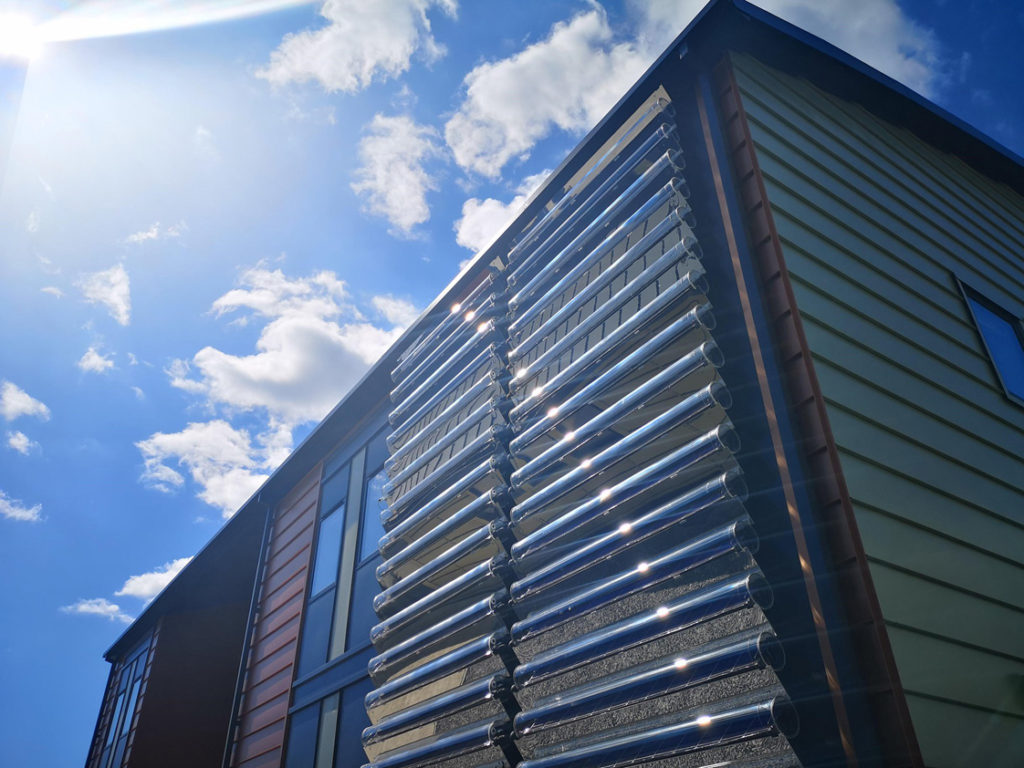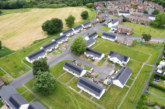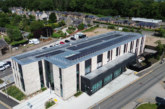Thanks to a £5m grant to speed up the Switch to Net Zero Buildings project, homes and buildings in south Wales are a step closer to being low carbon with cheaper energy costs.
Buildings — such as homes and offices — are responsible for 40% of all UK carbon emissions. The project, called Switch to Net Zero Buildings, will enable buildings across south Wales to generate, store and release their own heat and electricity. Crucially, buildings would be linked together in a regional energy system that is not only low carbon but also gives energy users more control.
The idea is to see ‘buildings as power stations’, an innovative design concept pioneered by Swansea University for both homes and non-domestic buildings. The principle has already been shown to work, for example in the Active Buildings on Swansea University’s campus.
The new project’s aim is to speed up the rate at which innovations are adopted, meaning that these technologies become more affordable and more widely deployed. This innovation ecosystem will also create strong local supply chains, boosting economic growth in the region.
The project is a consortium led by Swansea University with Cardiff University and University of South Wales, in partnership with Neath Port Talbot Council, Welsh Government, and Net Zero Industry Wales.
Professor Helen Griffiths, Pro Vice Chancellor for Research at Swansea University, said: “The Switch to Net Zero Buildings project builds on more than a decade of collaboration. At Swansea University we look forward to accelerating this work with our partners in government and industry to help deliver greener and more secure energy, lower bills, and an end to fuel poverty.”
The Leader of Neath Port Talbot Council, Cllr Steve Hunt commented: “This exciting project very much complements Neath Port Talbot Council’s ongoing Decarbonisation and Renewable Energy (DARE) strategy and also our overall vision to be seen as an attractive place to live, work and do business in.”

The £5m funding has been awarded by the UKRI Engineering and Physical Sciences Research Council (EPSRC), in the form of a Place Based Impact Acceleration Account.
The SWITCH to Net Zero Buildings is one of 10 projects to receive this award from the EPSRC, three of which involve Welsh collaborators.
George Freeman, UK Government Science Minister, said: “South Wales is a growing hub for sectors of the future, playing a pivotal role on our journey to net zero buildings, driving forward the UK’s hydrogen economy and through its pioneering semiconductor companies.
“Our more than £9m investment in projects led by Cardiff and Swansea universities will support comprehensive training and thousands of new jobs, while laying the groundwork that brings further private investment for years to come – growing the economies of Wales and the wider UK.”
The SWITCH to Net Zero Buildings account will be part of SWITCH, Wales’ Net Zero Accelerator. SWITCH is a wide collaborative network across academia, government and industry, coming together to support the region’s net zero ambitions. This funding follows other recent announcements in the SWITCH network, including the appointment of contractor Morgan Sindell to build SWITCH Harbourside and N0W Skills, which creates a green skills escalator in manufacturing related industries.
Header image: The Active Buildings at Swansea University, which generate their own solar energy. Image credit: SPECIFIC, Swansea University











